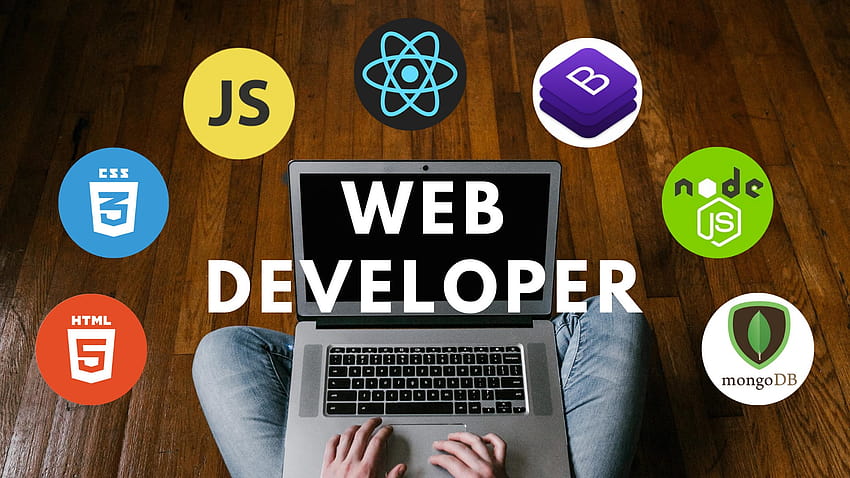Are you passionate about Web developement and interested in pursuing a career as a Web Developper? Web development refers to the process of creating and maintaining websites or web applications. It involves various tasks such as designing the user interface, writing code to implement functionality, and setting up the backend infrastructure to support the website's operation. Web development can range from building simple static websites to complex dynamic web applications that interact with databases, handle user authentication, and offer a wide range of features and services.
"Turning ideas into reality through code."
1. Basic Web Technologies:
° HTML5: Learn to structure content using HTML elements.
° CSS3: Understand styling and layout techniques for web pages.
° Basic JavaScript: Familiarize yourself with the fundamentals of programming and interactions.
2. Front-End Development:
° Advanced JavaScript: Dive deeper into JavaScript, covering topics like functions, objects, DOM manipulation, and asynchronous programming.
° Responsive Design: Learn to create websites that adapt to various screen sizes using media queries and flexible layouts.
° CSS Preprocessors: Explore tools like Sass or Less to streamline your CSS workflow.
° Version Control/Git: Master version control basics to collaborate and manage your code effectively.
3. Front-End Frameworks:
° React, Angular, or Vue: Choose and specialize in one of these popular JavaScript frameworks for building dynamic and interactive user interfaces.
4. Back-End Development:
° Server-Side Language: Pick a language like JavaScript (Node.js), Python, Ruby, or PHP for server-side development.
° Database Management: Learn about databases (SQL and/or NoSQL) and how to interact with them.
° API Development: Understand how to create and consume APIs to connect front-end and back-end components.
° Server Deployment: Learn to deploy applications using platforms like Heroku, AWS, or Azure.
5. Full-Stack Development:
° Combine Front-End and Back-End: Integrate your front-end and back-end skills to build complete web applications.
° Authentication and Security: Explore user authentication techniques and security best practices.
° Session Management: Learn how to manage user sessions and cookies.
6. Web Performance Optimization:
° Page Loading Speed: Study techniques to optimize website performance for faster loading times.
° Caching: Understand caching mechanisms to reduce server load and improve user experience.
7. Additional Skills:
° Responsive Images: Learn about optimizing images for various devices and resolutions.
° Accessibility: Understand how to create web content that's accessible to all users, including those with disabilities.
° Websockets and Real-Time Communication: Explore real-time data exchange between clients and servers.
° Web Security: Deepen your knowledge of common security vulnerabilities and mitigation strategies.
8. Project Portfolio:
° Personal Projects: Build a portfolio of diverse web applications to showcase your skills.
° Open Source Contributions: Contribute to open-source projects to gain experience and collaborate with other developers.
9. Continuous Learning:
° Stay Updated: Web development is constantly evolving. Stay up-to-date with new tools, libraries, and best practices.
10. Soft Skills:
° Communication: Effective communication is vital, especially when working in teams or with clients.
° Problem Solving: Develop strong problem-solving skills to tackle complex challenges.


Remember that consistency, practice, and patience are key throughout your journey. Don't hesitate to explore specialized areas based on your interests, such as mobile web development, progressive web apps, or even game development using web technologies. The roadmap provided serves as a foundation, but the web development landscape is vast, so adapt your learning as needed.
"Empowering Digital Experiences Through Innovative Web Development"


